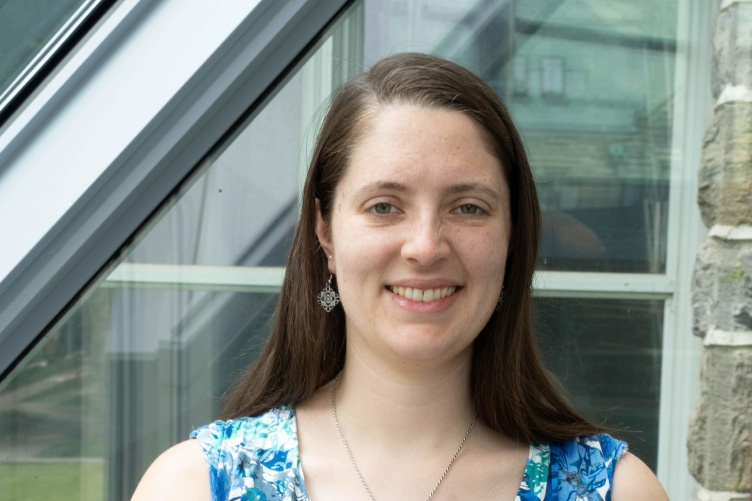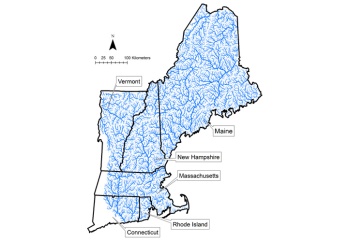
Jessica Scheick has been bringing science to the masses for years. A devotee of open science — a movement to make all steps of the research process, from data to resulting knowledge, more accessible and transparent to everyone — Scheick, a UNH research assistant professor of glaciology and remote sensing in the Earth Systems Research Center, is once again being honored for her work; the American Geophysical Union (AGU) has bestowed on her the 2024 Open Science Recognition Prize. Only three such prizes were awarded this year in recognition for outstanding work in advancing Open Science related to Earth and space science and its impact globally.
Scheick was nominated for this prize due to her leadership of the icepyx project, which is both an open-source software library and a thriving community of scientific collaborators utilizing data from NASA’s ICESat-2 mission, which measures the changing height of Earth’s many surfaces, including the frozen regions. The icepyx project, which began in 2019, has allowed scientists and students who don’t have extensive software development or coding experience to be able to access and analyze the ICESat-2 data more easily, thus lowering the barriers for a wider group of users. More than one-third of the ICESat-2 data downloads from the National Snow and Ice Data Center now rely on icepyx. Critically, the project also provides opportunities for those new to collaborating on coding to learn the skills required in a self-paced, supportive environment.
Scheick was previously selected for Geospatial World’s 2022 Rising Stars Award for her work with icepyx and geospatial data tooling.
“Practicing, and teaching, open science is critical to addressing many questions, from overcoming technical challenges related to vast data volumes to tackling shared threats like climate change," Scheick says. "All require collaboration across a range of experiences and disciplines, and open science is an important way to foster equitable and creative solutions. I’m honored to be recognized for my role in helping Earth scientists practice open science through improved data access, collaborative coding, and building community."
Scheick joins a distinguished group of scientists, leaders and communicators recognized by AGU for advancing science. Each honoree reflects AGU's vision for a thriving, sustainable and equitable future supported by scientific discovery, innovation and action.
Honorees will be recognized at AGU24, which will convene more than 25,000 attendees from over 100 countries in Washington, D.C. and online everywhere on 9-13 December 2024. Reflecting the theme 'What's Next for Science' at AGU24, the Honors Reception will recognize groundbreaking achievements that illustrate science's continual advancement, inspiring the AGU community with their stories and successes.
-
Written By:
Rebecca Irelan | Institute for the Study of Earth, Oceans, and Space | rebecca.irelan@unh.edu | 603-862-0990



















































